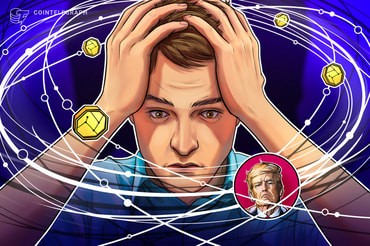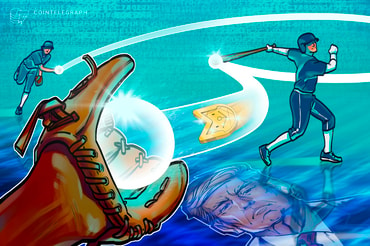OKX Singapore’s New CEO Says Custodian Arrangements Were ‘Most Important, Most Difficult’ Part of MPI License

Election 2024 coverage presented by
The Monetary Authority of Singapore’s crypto licensing regime is considered one of Asia’s gold standards, and getting a Major Payment Institution (MPI) isn’t meant to be easy.
In a recent interview with CoinDesk, OKX Singapore’s new CEO, Gracie Lin, whom the exchange recently hired from Grab, talked about the exchange’s journey in getting this license – which it was awarded earlier this month – and what makes the Singapore market unique.
Obtaining a custodial bank account was one of the most important conditions OKX needed to fulfill to transition from in-principle approval to a full license, Lin explained.
“The most important condition, and in some cases the most difficult, is that the bank has to become comfortable with you: what you bring to the table, your plans, and the controls you have in place,” Lin said. “Fulfilling that requirement was a major step toward obtaining the full license and completing the conversion process.”
One doesn’t have to look back very far to see the need for custodians. Japan was the safest place to be an FTX customer, thanks to rules written in the aftermath of the Mt. Gox and Coincheck hacks requiring the use of independent third-party custodians.
Former Mt. Gox CEO Mark Karpeles said in a recent interview that the collapse of his exchange simply wouldn’t have happened if, at the time, they had modern tools, like custodians, available to them.
During the interview, Lin also talked about what makes the Singapore market unique.
Within Singapore, OKX is able to use the government’s digital identity system, Singpass, to expedite the know-your-customer process that might take hours or days in other jurisdictions.
For their part, Singapore traders are described as generally passive, Lin said, with a preference for buying and holding their crypto assets rather than actively trading.
Not every token is available on this regulated platform, Lin explained, as they have to be pre-vetted by MAS.
“We have to provide a legal opinion that the token is not a security, along with our due diligence and risk assessment, which we submit to MAS,” Lin said.
“Initially, we had 21 tokens available. As of September 2nd, we’ve expanded that to over 50 tokens, and we’ve submitted additional tokens to MAS. Once they’re comfortable, we’ll list those as well,” she continued.
Edited by Parikshit Mishra.
Disclosure
Please note that our privacy policy, terms of use, cookies, and do not sell my personal information has been updated.CoinDesk is an award-winning media outlet that covers the cryptocurrency industry. Its journalists abide by a strict set of editorial policies. In November 2023, CoinDesk was acquired by the Bullish group, owner of Bullish, a regulated, digital assets exchange. The Bullish group is majority-owned by Block.one; both companies have interests in a variety of blockchain and digital asset businesses and significant holdings of digital assets, including bitcoin. CoinDesk operates as an independent subsidiary with an editorial committee to protect journalistic independence. CoinDesk employees, including journalists, may receive options in the Bullish group as part of their compensation.

Published on Other News Site












